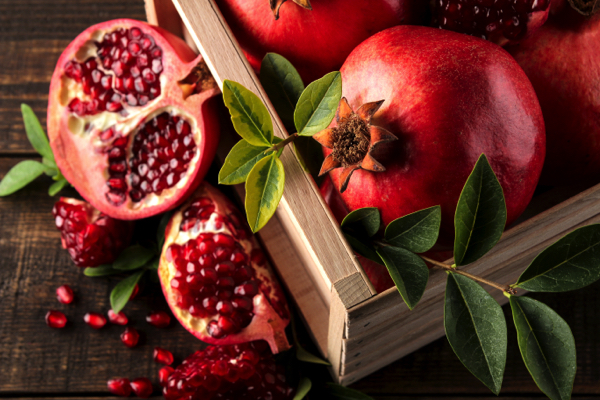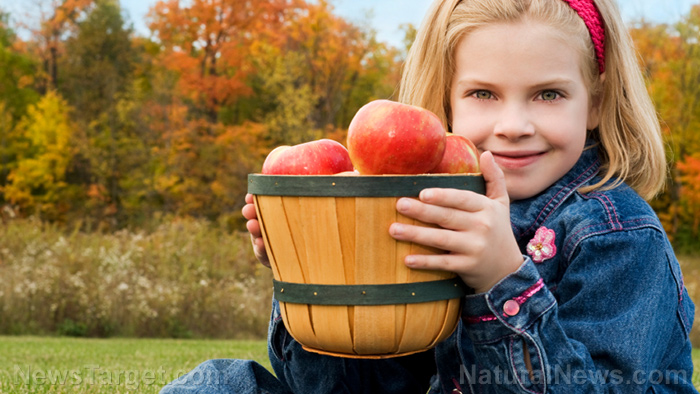Food for the brain: Beneficial effects of grapes on cognitive function and mental health
10/04/2024 / By Olivia Cook

Several randomized controlled trials (RCTs) suggest that the antioxidants and polyphenols in grapes may have beneficial effects on the brain, particularly when consumed consistently over time.
In the systemic review of RCTs assessing the effects of dietary grape interventions on cognitive function, eight studies that involved nearly 480 participants were examined to determine whether grapes or grape-based products could positively impact brain health. Two studies involved healthy young adults; one focused on healthy mothers; two included healthy older adults; and three examined older adults with mild cognitive impairment.
The studies took place across different countries: three in England, three in the U.S., one in Italy and one that spanned Canada and France. The majority of the participants were women, ranging from 33 to 100 percent across the studies. The trials also assessed a wide range of cognitive and mental health outcomes – from memory and language skills to mood and anxiety.
Grapes and cognitive function
A review of epidemiological studies and RCTs assessing grapes and their derivatives has found encouraging results in tests that measured executive function, memory, verbal skills and perception.
Executive function. This domain involves higher-level cognitive skills, like decision-making, problem-solving and task-switching. Two studies showed that grape intervention significantly improved these functions. For example, participants in one study were quicker to switch between tasks after consuming grapes – outperforming the placebo group at both two and four hours after consumption. However, one study did not report results for this domain. In another study, those who consumed grapes demonstrated better accuracy and control in a driving test.
Memory. This was the primary focus of all eight studies, which used different tests to measure various types of memory, including non-verbal, verbal, working memory and more. Four studies reported significant improvements in memory after grape consumption, especially among participants with mild cognitive impairment. One standout example comes from Krikorian et al., where participants showed better neurocognitive performance and reduced interference in memory tasks after four months of drinking grape juice. However, two studies found no noticeable effect on memory and the remaining two produced mixed results depending on the specific memory test used.
Verbal skills. Of the four studies that looked at language and verbal skills, one reported improvements after both short- and long-term grape interventions. Another trial found that chronic grape consumption (over three months) improved the participants’ verbal skills – both compared to their baseline performance and the placebo group. Two studies, however, did not find any effect in this domain.
Perception. In four studies that examined perception (the ability to interpret and organize sensory information), the results were more varied. Two studies demonstrated improvements, especially in attention tasks, but one showed similar gains in the placebo group. For instance, Bell et al. found that participants improved their attention scores in an attention network test after a grape intervention but the placebo group showed similar improvements – casting some doubt on the results.
Grapes and mental health
Several studies also explored how grapes might affect anxiety, depression and mood. A total of seven studies measured these mental health outcomes, but the results were mixed.
Mood and calmness. One study found that participants reported feeling calmer just 20 minutes after consuming grapes. However, five studies found no significant impact on mood symptoms, including anxiety and depression, following both short- and long-term grape interventions.
Depression and anxiety. The most notable mental health improvements were reported in a three-month study that focused on older adults. Using well-established tools like the Mini-Mental State Examination and the Beck Depression Inventory, researchers found that participants in the grape intervention group had reduced symptoms of depression and anxiety compared to those in the placebo group.
While there is evidence to suggest that grapes may support brain health, they are not a cure-all solution. Consuming grapes or grape-based supplements must complement other healthy habits to promote long-term cognitive well-being.
Read more stories about grapes and other superfoods at SuperFood.news.
Watch this video about grapes and brain health.
This video is from the Daily Videos channel on Brighteon.com.
More related stories:
How to keep your brain healthy and sharp as you age.
Exercise preserves brain cells and prevents memory loss.
Aerobic exercise improves memory and brain power in older adults.
Sources include:
Submit a correction >>
Tagged Under:
aging secrets, alternative medicine, antioxidants, anxiety relief, beat depression, brain function, brain health, cognitive function, cognitive health, food cures, food is medicine, food science, fruits, grapes, health science, mental health, Mind, natural cures, natural health, natural medicine, organics, phytonutrients
This article may contain statements that reflect the opinion of the author




















